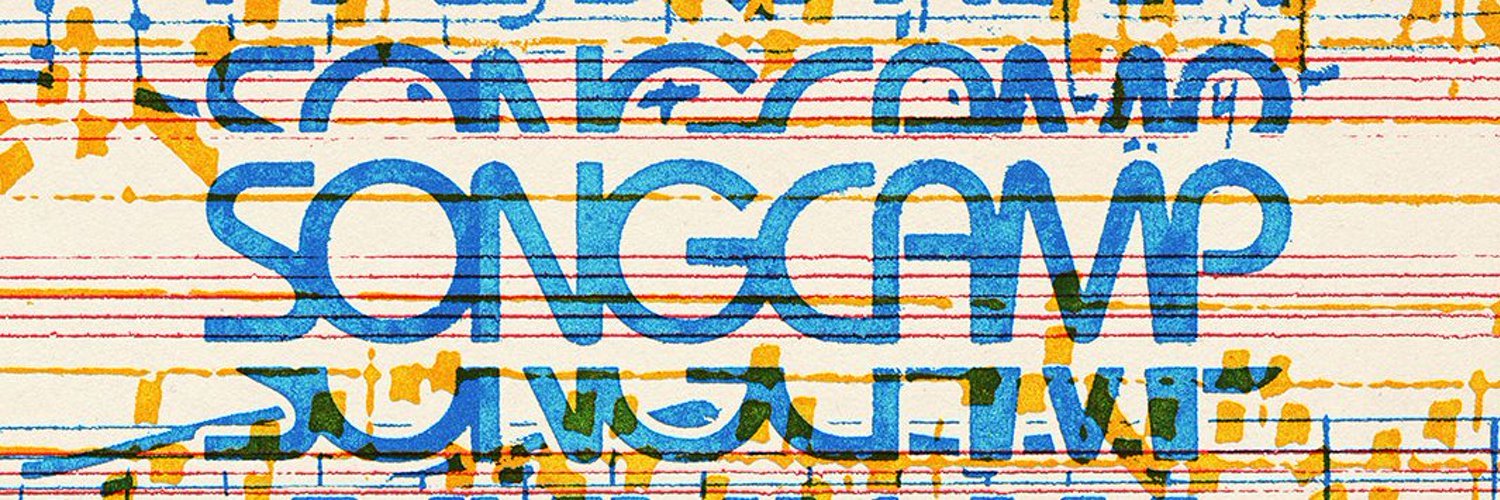Songcamp Skips a Beat and Returns to Basics with Audiato
The platform aims to help musicians monetize their work while staying true to on-chain values

One night in March, 2021, after “getting a little bit high,” Matthew Chaim launched the Songcamp Discord. “I just wrote on the first channel, this is a place for music and the new Internet to crash into each other."
That tagline stuck. As the world hunkered down in pandemic-induced isolation, music-makers – and many of the rest of us – sought social refuge in online communities. Dozens of artists flocked to Songcamp, and what followed were four virtual, experimental songwriting camps, complete with lore and novel web3 mechanics.
The third, Chaos, was a 77-person headless band that created 48 songs and generated about half a million dollars in revenue. The fourth, C4, used minting mechanics and visual aesthetics that referenced the act of writing to blank CDs. Buyers were able to mint one of the five songs (per disc) that C4's 15 musicians created during the camp.
Songcamp stood tall as a testament to the on-chain music dream. Some half-jokingly even christened the space “on-chaim music.” And Songcamp ticked all the boxes: collaborative, sans hierarchy, shared bank accounts with meaningful cash flow, engaging worldbuilding – even spin-off groups that continue to release music under the creative commons license, CC0.
All the while, there was the consistency of a weekly heartbeat call: every Monday at 4:00 PM Eastern, the crew assembled on Discord. And they never skipped a beat – until they did.
Even Songcamp wasn’t impervious to the post-Covid craving for tactile worlds. "I think the creator crypto web3 space is still shaking off the pandemic,” Chaim told me recently. “That energy has deflated. The Discord servers that once felt like cityscapes are now ghost towns. It’s like the shaking off of an era to lay ground for the next one.”
With attendance dwindling, Chaim eventually made the decision to pause the heartbeat call. Songcamp’s team, too, has been pared down. Today it’s just Chaim, Peace Node, the designer who has long captained Songcamp’s visual brand, and developer Russ Matthews.
But these are not the death throes of a once thriving community, Chaim asserts – this is just part of the shake-off. Today he’s helping to refashion Songcamp as Audiato, a music sharing platform built on the creator-friendly, non-fungible token (NFT) protocol Zora. In time, he hopes it can get the gang back together.
Chaim grew up in Montreal. He started his musical journey as a drummer before transitioning to rap and songwriting in his late teens. That evolution led him to Los Angeles, where he released his debut album, The Mathematics of Nature, in 2019. During the pandemic, he returned to Montreal and was introduced to web3 by a friend working in decentralized finance (DeFi).
He envisaged ways that blockchain technology could intersect with culture and art, which led him to NFTs in late 2020, and then to that fateful, buzzed night in March of 2021. He and I have chatted several times since then, but this was the first time post-heartbeat.
"I do believe that [the heartbeat call] comes back,” he said, speaking from his home. “I have high intention to help steward the Songcamp community back together. I don't think it will be a Discord call that is the flagship for that."
For a minute, Chaim thought that flagship would be Collab, a “high touch” platform to get musicians to collaborate with each other online. But after alpha testing with Songcamp alums, it wasn’t “kicking things into gear,” Chaim said, so they pivoted. “Let's get closer to the transaction, to the release,” he mused, “to the thing that artists really want, which is the ability to monetize their work – the ability to get people discovered in new and interesting contexts.”
“What artists really want” became Audiato, a front-end client built on Zora. It’s a simple, feed-based interface dedicated to posting, sharing and minting music. "We wanted it to be very chill, and a public good,” Chaim said, “so that anyone can use this tool to make their music.”
When Chaim first entered the space, he was hanging out in the “cultural corner of Zora,” he told me. Recently, Zora launched an impactful protocol upgrade, and Chaim was inspired by the upgrades for new secondary markets and mint fees.
Zora's ERC1155 tokens – an efficient smart contract that can manage multiple types of tokens – can now be wrapped in ERC20s – which are fungible tokens – so they can be bought and sold on the popular crypto exchange Uniswap. Additionally, creators will now earn on all secondary sales, and Zora’s mint fee drops from 777 sparks (i.e. 0.000777 ETH, or about $2.50) to 111.
"We're going to be releasing [the new version of Audiato] that evolves into the new Zora protocol,” Chaim told me. “And we're excited because I don't think that music has really touched that exact form factor yet."
The plan is for Songcamp to expand the app to include curatorial filters, separating the catalog into “new releases,” “camp picks,” “trending,” “latest” and “beats and instrumentals.”
Chaim envisages Audiato as more SoundCloud than Spotify. “You don't [only post] your best – the music that you've gotten mastered for a thousand dollars a track,” he said. “This is your library – your discography to mint your work.”
Songcamp earns money via the Zora protocol’s native mechanics. “People mint on our platform and there's a minter fee within each referral reward, basically,” Chaim explained.
But when tracks are minting for pennies on the dollar, that’s a model that “only works with very high volumes, which we're obviously not seeing today with music,” Chaim said. “But I do see a future where catalogs of music libraries are on-chain and do have that native economic thing plugged into them.”
Songcamp is leaning into that future. Their official Twitter account recently posted: “Feels good to see mint count, price, % change, and [market cap] for music,” referencing the metrics listed alongside each track. Another reads: “To every song, a market.”
Whether every song should borrow from financial games and exist as markets remains open to discussion, but after reckoning with a streaming model that obfuscates fan data and pays a pittance, it’s no surprise builders are course correcting with explicit, financial transparency. It makes sense.
And Songcamp, particularly, has proved demonstrably capable. They seem to have cracked that hallowed code, repeatedly translating a connective ethos into financial gains without sacrificing principles. The exodus from Discord isn’t an indication that people suddenly stopped wanting connection, or to co-create in shared spaces.
“Those things still very much exist – this desire to connect in higher fidelity ways,” Chaim said. “Because we were all pushed online, the avenues for that were Discord and whatnot. I think today those shared spaces need to evolve, they need to move more IRL.”
Chaim himself is eager to start making music again. “I do crave to go to LA and work with my main producer/collaborator out there,” he said. At the moment, though, he and his wife are expecting their first child, so he’s hunkered down at home once again.
“I'm hoping after baby arrives and, you know, we'll see how everything plays out when I’m actually able to travel, but when I do, LA is at the top of the list,” he continued. “I want to get out there and do some writing, together.”
lead image: Matthew Chaim

